Background
Robert Bresson was born on September 25, 1901 (some sources say 1907) in Bromont-Lamothe, Puy-de-Dôme, Auvergne-Rhône-Alpes, France. He was the son of Léon Bresson, a French officer, and Marie-Élisabeth Bresson.

1959
Shooting of the film Pickpocket by Robert Bresson with Martin Lasalle on June 30, 1959. Photo by Francois Pages
1968
Shooting of the film "Une Femme Douce" by Robert Bresson with Dominique Sanda in november 1968.
1968
Shooting of the film "Une Femme Douce" by Robert Bresson with Dominique Sanda in november 1968.
1972
Excelsior Hotel, Lido, Venice
Italian director Sergio Leone standing outside the Excelsior Hotel with Robert Bresson, Lido, Venice, 1972. Photo by Archivio Cameraphoto Epoche
1983
Cannes, France
Russian film director Andrei Tarkovsky and French director Robert Bresson receive awards for creative cinema at the 1983 Cannes Film Festival. Photo by Richard Melloul.
1983
Paris, France
French director Robert Bresson in Paris on June 20, 1983. Photo by Micheline Pelletier.
3 Avenue du Président Franklin Roosevelt 92330, Sceaux, Hauts-de-Seine, France
Robert Bresson was educated at Lycée Lakanal in Sceaux, Hauts-de-Seine, and turned to painting after graduating.
Robert Bresson
Robert Bresson
Robert Bresson
Robert Bresson














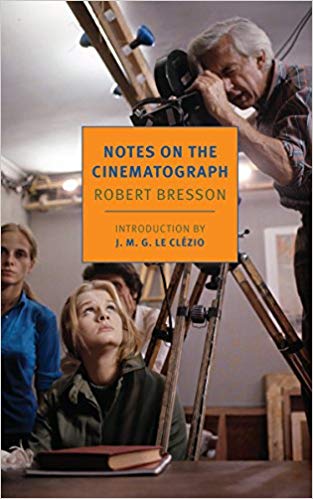
(Notes on the Cinematograph distills the essence of Bresso...)
Notes on the Cinematograph distills the essence of Bresson’s theory and practice as a filmmaker and artist. He discusses the fundamental differences between theater and film; parses the deep grammar of silence, music, and noise; and affirms the mysterious power of the image to unlock the human soul. This book, indispensable for admirers of this great director and for students of the cinema, will also prove an inspiration, much like Rilke’s Letters to a Young Poet, for anyone who responds to the claims of the imagination at its most searching and rigorous.
https://www.amazon.com/Notes-Cinematograph-Review-Books-Classics/dp/1681370247/?tag=2022091-20
1975
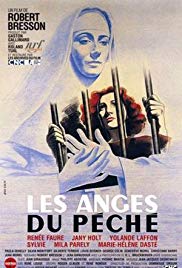
(Anne-Marie (Renée Faure), a well-off young woman, decides...)
Anne-Marie (Renée Faure), a well-off young woman, decides to become a nun, joining a convent that rehabilitates female prisoners. Through their program, she meets a woman named Thérèse (Jany Holt) who refuses any help because she says she was innocent of the crime she was convicted for. After being released from prison, Thérèse murders the man she feels is responsible for her imprisonment and comes to seek sanctuary from the law in the convent. Anne-Marie clashes with her sisters and elders over her zealousness to reform Thérèse, who manipulates and antagonizes her. Original name: Les anges du péché.
https://www.amazon.com/Ances-Peche-Angels-NTSC-REGION/dp/B00CF14C7O/?tag=2022091-20
1943
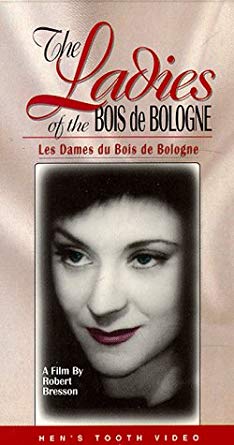
(A society lady engineers a marriage between her lover and...)
A society lady engineers a marriage between her lover and a cabaret dancer who is essentially a prostitute. Original name: Les dames du Bois de Boulogne.
https://www.amazon.com/Ladies-Bois-Bologne-Paul-Bernard/dp/6303404944/?tag=2022091-20
1945
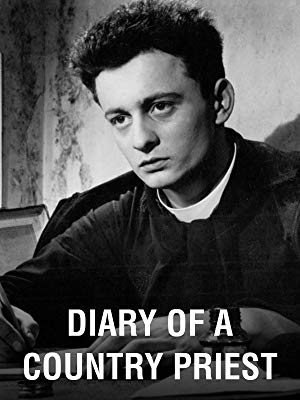
(A new priest arrives in the rural French village of Ambri...)
A new priest arrives in the rural French village of Ambricourt to attend to his first parish. The apathetic congregation rejects him immediately. Through his diary entries, the suffering young man relays a crisis of faith that threatens to drive him away from the village and from God. Original name: Journal d'un curé de campagne.
https://www.amazon.com/Diary-Country-Priest-Claude-Laydu/dp/B07NLKBL1V/?tag=2022091-20
1951
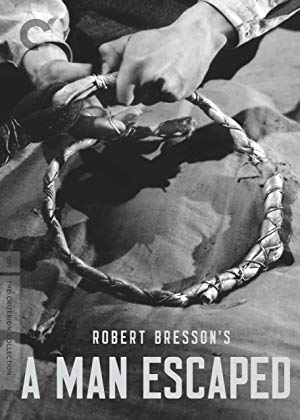
(Based on the account of an imprisoned French Resistance l...)
Based on the account of an imprisoned French Resistance leader, this unbelievably taut and methodical marvel follows the fictional Fontaine's single-minded pursuit of freedom, detailing the planning and execution of his escape with gripping precision. Original name: Un condamné à mort s'est échappé ou Le vent souffle où il veut.
https://www.amazon.com/Man-Escaped-English-Subtitled/dp/B00CJ5JOQ0/?tag=2022091-20
1956
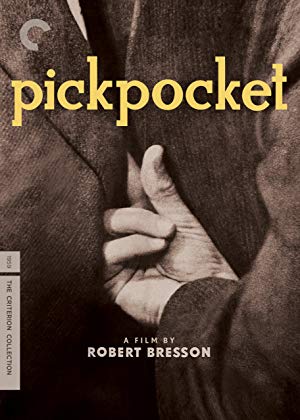
(This incomparable story of crime and redemption from the ...)
This incomparable story of crime and redemption from the French master Robert Bresson follows Michel, a young pickpocket who spends his days working the streets, subways, and stations of Paris. A cornerstone in the career of this profoundly spiritual filmmaker, Pickpocket is an elegantly crafted, tautly choreographed study of humanity.
https://www.amazon.com/Pickpocket-English-Subtitled-Martin-LaSalle/dp/B00LTMG3HW/?tag=2022091-20
1959
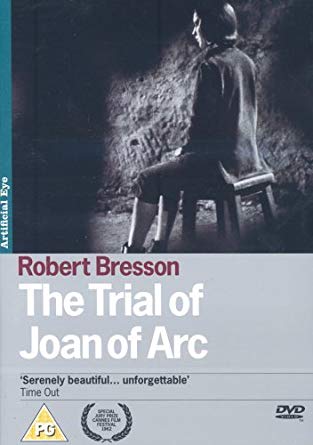
(A reconstruction of the trial of Joan of Arc (based entir...)
A reconstruction of the trial of Joan of Arc (based entirely on the transcripts of the real-life trial), concerning Joan's imprisonment, interrogation and final execution at the hands of the English, filmed in a spare, low-key fashion. Original name: Procès de Jeanne d'Arc.
https://www.amazon.com/Trial-Proc%C3%A8s-Jeanne-NON-USA-FORMAT/dp/B000803OOG/?tag=2022091-20
1962
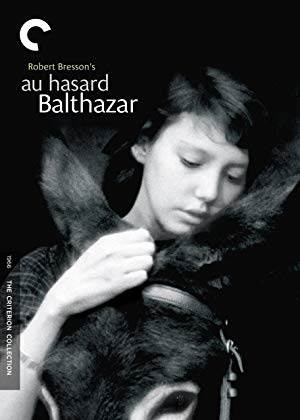
(A profound masterpiece from one of the most revered filmm...)
A profound masterpiece from one of the most revered filmmakers in the history of cinema, Robert Bresson's Au hasard Balthazar follows a donkey as he is passed from owner to owner, all with motivations beyond his understanding. Through Bresson's unconventional approach to composition, sound, and narrative, this seemingly simple story becomes a moving parable of purity and transcendence.
https://www.amazon.com/Au-Hasard-Balthazar-English-Subtitled/dp/B00QROGDMM/?tag=2022091-20
1966
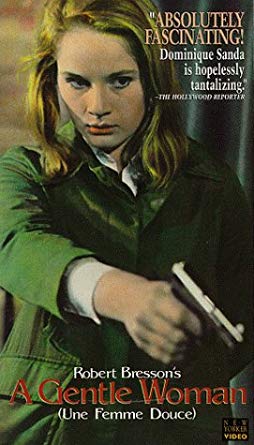
(The film opens with a falling scarf, leading us to a youn...)
The film opens with a falling scarf, leading us to a young woman's dead body on the street. From the later scenes, we understand that the young woman was Elle (Dominique Sanda), who steps off the balcony of her Parisian apartment, plunging to her death. Why has she done it? As her distraught husband, Luc (Guy Frangin), looks over her dead body, and explores what led her to kill herself in a talk to the maid, the picture traces their lives together in flashbacks. Elle is A Gentle Creature - meek, dreamy and thoughtful. She entrances Luc, who pursues her passionately. They marry, but the match never seems right. The story reveals their desperate, despairing miscommunication. Though they try many diversions (theater, television, films) these are momentary respites for the two of them (for Elle more-so, as we see with her interest in Hamlet, which plays out in an extended scene). Their dialogue only deepens her isolation and sadness. Original name: Une femme douce.
https://www.amazon.com/Gentle-Woman-VHS-Dominique-Sanda/dp/6303672337/?tag=2022091-20
1969
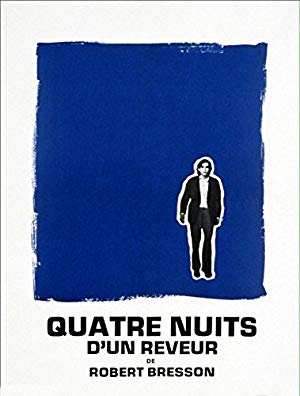
(The 'dreamer' is Jacques, a young painter, who by chance ...)
The 'dreamer' is Jacques, a young painter, who by chance runs into Marthe as she's contemplating suicide on the Pont-Neuf in Paris. They talk, and agree to see each other again the next night. Gradually, he discovers that her lover promised to meet her on the bridge that night, and he failed to turn up. Original name: Quatre nuits d'un rêveur.
https://www.amazon.com/Four-Nights-Dreamer-Robert-Bresson/dp/B01IO62UV8/?tag=2022091-20
1971
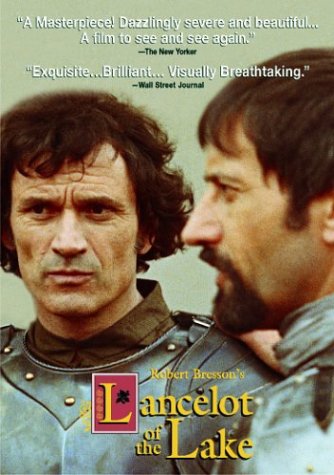
(King Arthur has sent out 100 knights to retrieve the Holy...)
King Arthur has sent out 100 knights to retrieve the Holy Grail. Arthur is dismayed when it turns out that the mission was futile and 70 knights have died in its course. Among those who have returned is Lancelot, the lover of Queen Guinevere. Soon Lancelot again takes part in a tournament. There he gets injured. While Lancelot seeks recovery in his own castle, Arthur learns about his wife's affair and, heavily agitated by Mordred, he puts Queen Guinevre in prison. With Lancelot's help she breaks out. Arthur starts immediately a campaign against the castle where the lovers were looking for shelter. During the siege Lancelot happens to kill his old mate Gawain. Driven by sorrow he tries to end the fight and wants to negotiate a treaty with King Arthur. When he witnesses how Mordred commits an attempt on Arthur he joins without hesitating the side of the king. In the final scene, many knights, among whom Arthur, lie dead or wounded after the battle. Lancelot, wounded himself, utters Guinevere's name before falling over. Original name: Lancelot du Lac.
https://www.amazon.com/Lancelot-Lake-Luc-Simon/dp/B0001Y4LEG/?tag=2022091-20
1974
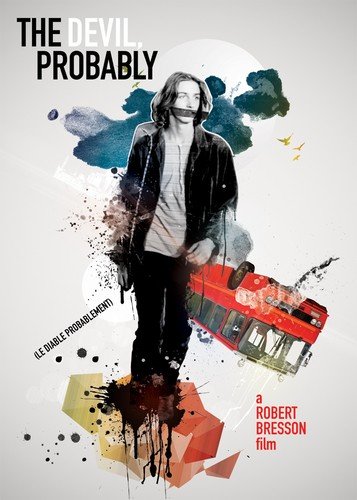
(An alienated Paris youth and his friends seek life's mean...)
An alienated Paris youth and his friends seek life's meaning in religion, politics, psychoanalysis and love. Original name: Le diable probablement.
https://www.amazon.com/Devil-Probably-Antoine-Monnier/dp/B008DL4K8Q/?tag=2022091-20
1977
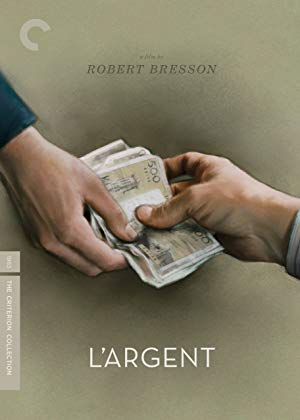
(In his ruthlessly clear-eyed final film, French master Ro...)
In his ruthlessly clear-eyed final film, French master Robert Bresson pushed his unique blend of spiritual rumination and formal rigor to a new level of astringency.
https://www.amazon.com/Largent-English-Subtitled-Christian-Patey/dp/B073RS2SV8/?tag=2022091-20
1983
director filmmaker screenwriter author
Robert Bresson was born on September 25, 1901 (some sources say 1907) in Bromont-Lamothe, Puy-de-Dôme, Auvergne-Rhône-Alpes, France. He was the son of Léon Bresson, a French officer, and Marie-Élisabeth Bresson.
Robert Bresson was educated at Lycée Lakanal in Sceaux, Hauts-de-Seine, and turned to painting after graduating.
Robert Bresson originally began his career as a painter and photographer before moving to films. In the mid-1930s, he worked as a scriptwriter on comedies. Bresson's writer credits include C'Était un Musicien (1933), Les Jumeaux de Brighton (1936), and Courier Sud (1937), which was based on Antoine de Saint-Exupéry's novel. He was also René Clair's assistant on the uncompleted Air Pur. Bresson's first film, Les Affaires publiques (1934), was made to serve as a "filter" to precede the main feature.
He was a prisoner of the German Army in 1941 while serving during World War II and after his release he completed his first feature film, Les Anges du Peche (title means "Angels of the Streets") in 1943. Bresson never joined in such cinema movements as the French New Wave, choosing instead to make films that suited his own taste. In 1945 he produced Les Dames du Bois de Boulogne (1945, The Ladies of the Bois de Boulogne).
In 1947, Bresson went to Rome to work on a screenplay of the life of St. Ignatius Loyola, but the film was never realized. Based on a novel by Bernanos, Journal D'un Curé De Campagne (1950) was awarded the Venice Film Festival Golden Lion and became a commercial success. This was his last use of Grunenwald and any professional actors. Subsequently, he cast by face, gesture and even by voice over the telephone.
In 1956 Bresson made the film that became - and remained - his greatest popular success, Un Condamné à Mort S'est Echappé (A Man Escaped). Although life for Bresson never became easy, this success led to six features in the following 15 years - Pickpocket (1959), Le Procès De Jeanne d'Arc (1961), Au Hasard, Balthazar (1966), Mouchette (1969) and his first films in colour, Une Femme Douce (1969) and Quatre Nuits D'un Reveur (1971), the last two taken from Dostoevsky. Bresson's first use of Dostoevsky was more obliquely in Pickpocket, where the inspiration is Crime And Punishment.
In 1974, Bresson completed a long cherished project. Once planned as an English-based film, Lancelot Du Lac was reissued in 1994 and still looked years ahead of its time, with its timeless quality and its concern with spirituality and earthliness. He followed this classical work with his most controversial one, Le Diable, Probablement (1977), inspired by a newspaper report of a student who committed suicide by proxy - paying another boy to shoot him.
In addition to the screenplays, Bresson completed one book: Notes sur le cinematographe (title means "Notes on Cinematography") in 1975. In 1983 Robert Bresson made his last film L'Argent (title means "Money").
Robert Bresson was perhaps the most highly regarded French filmmaker after Jean Renoir. He created a new kind of cinema through meticulous refinement of the form's grammatical and expressive possibilities. Bresson received numerous awards during his lifetime and took top honors at the Cannes Film Festival for A Man Escaped and L'Argent.
He has influenced a number of other filmmakers, including Andrei Tarkovsky, Michael Haneke, Jim Jarmusch, the Dardenne brothers, Aki Kaurismäki, and Paul Schrader. His book "Notes on the Cinematographer" is one of the most respected books on film theory and criticism.
(Notes on the Cinematograph distills the essence of Bresso...)
1975(Based on the account of an imprisoned French Resistance l...)
1956(A reconstruction of the trial of Joan of Arc (based entir...)
1962(A profound masterpiece from one of the most revered filmm...)
1966(This incomparable story of crime and redemption from the ...)
1959(In his ruthlessly clear-eyed final film, French master Ro...)
1983(The 'dreamer' is Jacques, a young painter, who by chance ...)
1971(Anne-Marie (Renée Faure), a well-off young woman, decides...)
1943(A young girl living in the French countryside suffers con...)
1967(An alienated Paris youth and his friends seek life's mean...)
1977(A society lady engineers a marriage between her lover and...)
1945(A new priest arrives in the rural French village of Ambri...)
1951(The film opens with a falling scarf, leading us to a youn...)
1969(King Arthur has sent out 100 knights to retrieve the Holy...)
1974Robert Bresson believed that aspiring filmmakers should study music, painting and poetry - and not attend film school.
Quotations:
"Prefer what intuition whispers in your ear to what you have done and redone ten times in your head."
"My movie is born first in my head, dies on paper; is resuscitated by the living persons and real objects I use, which are killed on film but, placed in a certain order and projected on to a screen, come to life again like flowers in water."
Robert Bresson was notorious for refusing to discuss his personal life, or even to talk much about his own work. He was also an accomplished pianist, playing until he "lost the nimbleness" in his fingers. Music remained a dominant interest in his life.
Quotes from others about the person
"He [Robert Bresson] is the French cinema, as Dostoevsky is the Russian novel and Mozart is German music." - Jean-Luc Godard.
In 1926 Robert Bresson married Leidia Van der Zee. Later, she died. In the early 1990s, he married Marie-Madeleine van der Mersch, who had been his assistant director from Quatre nuits d'un rêveur.
